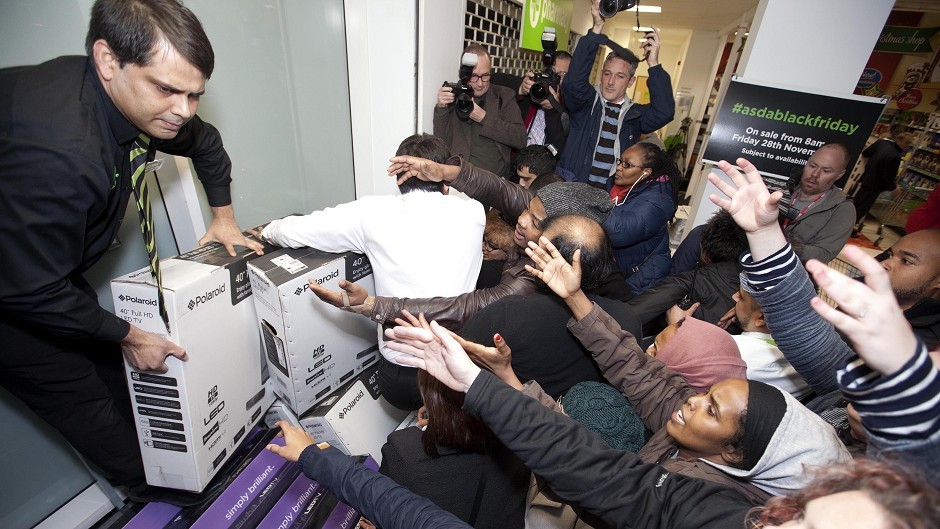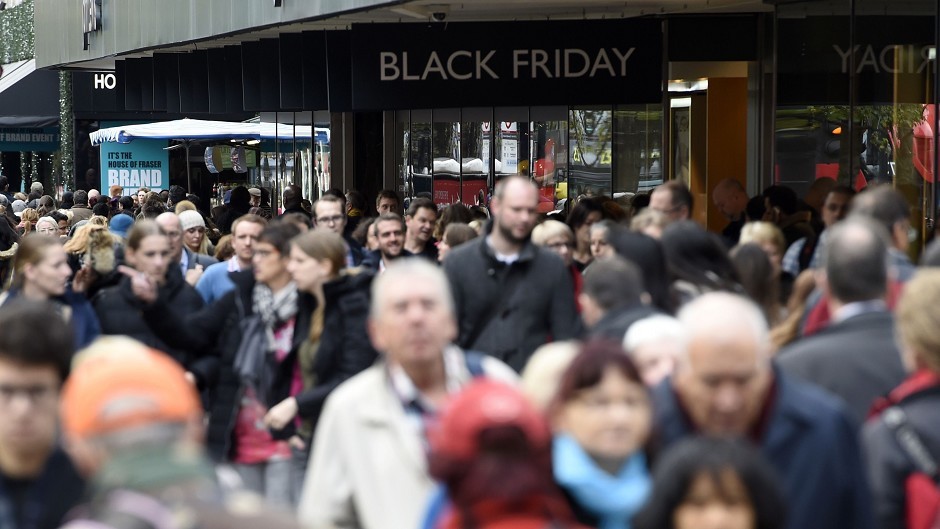Professor Ewan Gillon, chartered psychologist and clinical director of First Psychology Aberdeen discusses the psychology behind shoppers’ urgency to get the best deals on Black Friday.
You may remember the videos and images from last year’s Black Friday which showed frantic shoppers fighting with each other to bag the best sales goods.
The Black Friday hype has been fully underway for most of this month, leading many to wonder, will it be the same chaos at shops again this year?
It seems as though everyone in Britain is talking about Black Friday at the moment and if we don’t join in we may feel as though we’re missing out. For some of us, picking up bargains and joining in with the hype of Black Friday is fun and simply makes us excited. However, for others it can lead to a huge amount of stress.
Black Friday deals are only available for a limited time; whether it’s for one day, the weekend, a week or until the stock runs out. This encourages us to ‘act fast’ which can lead us to impulse buy. We can sometimes feel as though we ‘need’ a product as we’re worried about how we will feel if we don’t buy it and others snap up the bargain.
With limited numbers of deals available, we feel as though we are in direct competition with others. If there are people queuing up outside a shop before it opens, we may feel the need to join in.
Seeing these queues of shoppers can make us feel anxious as it means others might get to the ‘prize’ before us, causing us to miss out. The same can be said for people running towards products as soon as the store opens; if we don’t participate in this behaviour we will be left behind.
We often feel a sense of achievement when we pick up a bargain, making us feel happy. When we perceive that someone else is stopping us from this we can feel frustrated, causing us to lash out and become aggressive.
For example, if someone is reaching for the TV you want, you might start to feel desperate that you need that TV in order to feel good about yourself. Therefore, the only way you can get that TV is to push the other person out of the way, and to some of us this might feel like a price worth paying, even if it is a behaviour we don’t normally exhibit. And, this is where the aggression often starts.
When crowds of other people are fighting for products, it can make us feel as though we need to do this in order to succeed and get what we want. Seeing other people act this way can make us believe their behaviour is acceptable – ‘If other people are doing it, it must be ok’.
For people who plan which deals and bargains they want to snap up, they are often more invested and more likely to be the ones participating in aggressive behaviour – they’ve planned what they are going to buy and anything that stops them from doing this is going to make them feel as though they have failed.
This makes them feel stressed, causing them to lash out at those stopping them from getting what they want. It’s not a pretty sight to watch given that we now live in a more harmonious society where such behaviour is considered unacceptable, but in many ways it’s our primary instinct kicking in to look after ourselves and protect what is deemed important to us at that time.

